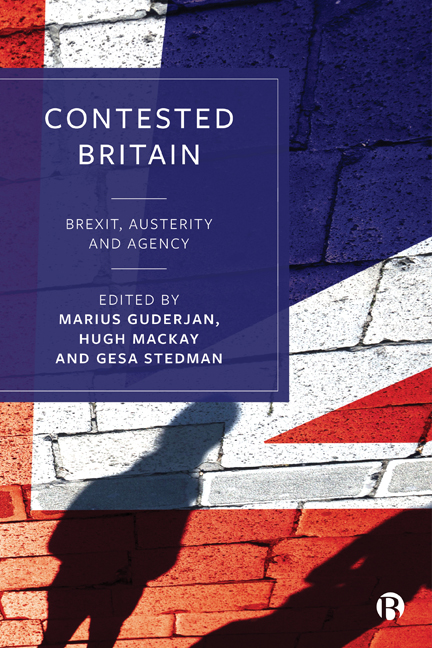13 - Scotland, Brexit and the Broken Promise of Democracy
Published online by Cambridge University Press: 10 March 2021
Summary
Introduction
Britain's Brexit vote in June 2016 can quite plausibly be interpreted as a reaction to a broken (or at least unfulfilled) ‘promise of democracy’ (Dallmayr, 2010) – a promise that includes economic, social, cultural and political participation and allows for individual as well as collective forms of agency in addition to decision-making by distant governments and corporate business elites. In England and Wales, populist Leave campaigners successfully portrayed the European Union as the very opposite of the democratic promise and an obstacle to social, cultural and political agency from below. While political disillusionment is certainly no less prevalent north of the border, in Scotland the response to this unfulfilled or broken promise has taken a rather different form. In the Brexit referendum a huge majority of Scots (62 per cent) rejected the simplistic notion that leaving the European Union would actually allow ordinary people to take back control over their daily lives.
This chapter explores how we can explain the different attitudes towards European integration in Scotland. Scotland was much more Eurosceptical than England in the 1975 referendum on entry to the European Community (58 per cent approval in Scotland versus 69 per cent in England), so any essentialist reading of a pro-European national character can be rejected from the outset. Instead, the first historical conjuncture since then that might help to reveal Scotland's deviation can be seen as the era of Thatcherism. Section two argues that Thatcherism created the perception of ‘a democratic deficit’ in Scotland, long before debates around the democratic legitimacy of the EU had emerged. Section three looks at the then-fledgling Scottish selfgovernment, and shows that many of Scotland's attempts to overcome this deficit were closely linked to the European integration process. Europe has thus been seen predominantly as part of the solution rather than the problem. How this fundamental difference played out during the Brexit referendum campaign is discussed in section four. Section five finally deals with the effects the Brexit decision and the subsequent negotiations may have on Scotland's constitutional status. The conclusion summarizes and contextualizes these findings focusing on Scotland's quest for democracy and agency throughout its distinct Brexit experience.
- Type
- Chapter
- Information
- Contested BritainBrexit, Austerity and Agency, pp. 189 - 202Publisher: Bristol University PressPrint publication year: 2020



